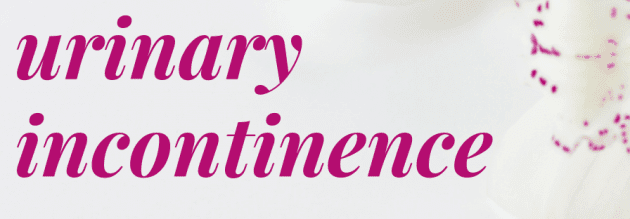
Talking about Urinary Incontinence
Female incontinence is very common and up to 40% women suffer from it. In this post, Consultant Gynaecologist Narendra Pisal discusses what can contribute to it and how women can deal with it.
Women needn’t be afraid or embarrassed to report urinary incontinence, and you should see a doctor straightaway if you are concerned. Any accidents are not a part of normal physiology, and if this is interfering with your life such as exercise, work or sex-life, you need to see your doctor. Learning to do pelvic floor exercise is very easy and you can do these practically anywhere. Your doctor will often recommend a specialist women’s health physiotherapist. The easiest way is to download an NHS app (smartphone application) called Squeezy. You need to pay a small fee for it, but it is definitely worth it.
Below are some of the most common causes:
- Falling hormones: Vaginal mucosa and connective tissues are oestrogen dependent and become atrophic and weaker after menopause. Same applies to the bladder mucosa and hence urinary problems are more common in women after 50.
- Childbirth: Pregnancy and childbirth especially if associated with a large baby and prolonged labour can cause weakness of tissues. Pelvic Floor Exercises are therefore extremely important during pregnancy and in the postnatal period.
- Lifestyle factors: Smoking, being overweight, chronic cough, constipation, lifting heavy weights can all affect pelvic floor muscles and can exacerbate an existing weakness.
Directed pelvic floor exercise is the first line of treatment for this condition and makes a huge difference in 6 out of 10 cases (see the Squeezy NHS app). A specialist will be able to advise when surgery is appropriate.
Smoking, chronic cough, constipation, lifting heavy weights can all affect pelvic floor muscles and can exacerbate an existing weakness. So, avoiding constipation and learning to contract the pelvic floor muscles when sneezing, coughing etc would be preferable. Avoiding caffeinated drinks that can irritate the bladder can also be helpful. Staying fit and the right weight is also helpful.
Vaginal mesh has been used in the past for repair of pelvic floor but has been associated with problems recently. It is best to avoid this option for now unless it has been recommended in a specialist unit. It is only used now for a very small group of carefully selected women where other treatment options have not worked.
Simply by talking about incontinence, women will realise how common the condition is, especially in the over 50s, and they might be able to help themselves before needing to go and see a doctor. Learning to do pelvic floor exercise is very easy and you can do these practically anywhere using the Squeezy smartphone application.
If you have any concerns about urinary incontinence, speak to your GP or contact us on 0207 10 11 700.
